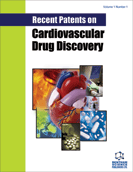Abstract
Diabetes is a major metabolic disorder and leading cause of morbidity and mortality in the developed world. Indeed, vascular complications are the major cause of mortality in diabetics. Impaired glucose metabolism has been implicated as a cause for the observed cardiac dysfunction in diabetics. Dramatic increase in polyol pathway flux during hyperglycemia could cause damage to blood vessels that leads to heart failure. Recent investigations and patent applications suggest the interesting and important role of polyol pathway enzyme, aldose reductase (AR) in mediating oxidative stress-induced inflammatory signals. AR inhibitors have been shown to prevent or delay the onset of cardiovascular complications such as ischemic injury, restenosis and atherosclerosis. In this review, we have focused on describing the pivotal role of AR in the pathogenesis of cardiovascular complications and use of AR inhibitors as emerging therapeutic strategies in preventing cardiovascular complications.
Keywords: Diabetes, aldose reductase, inflammation, polyol, oxidative stress, cardiovascular, &, ischemia
 18
18


